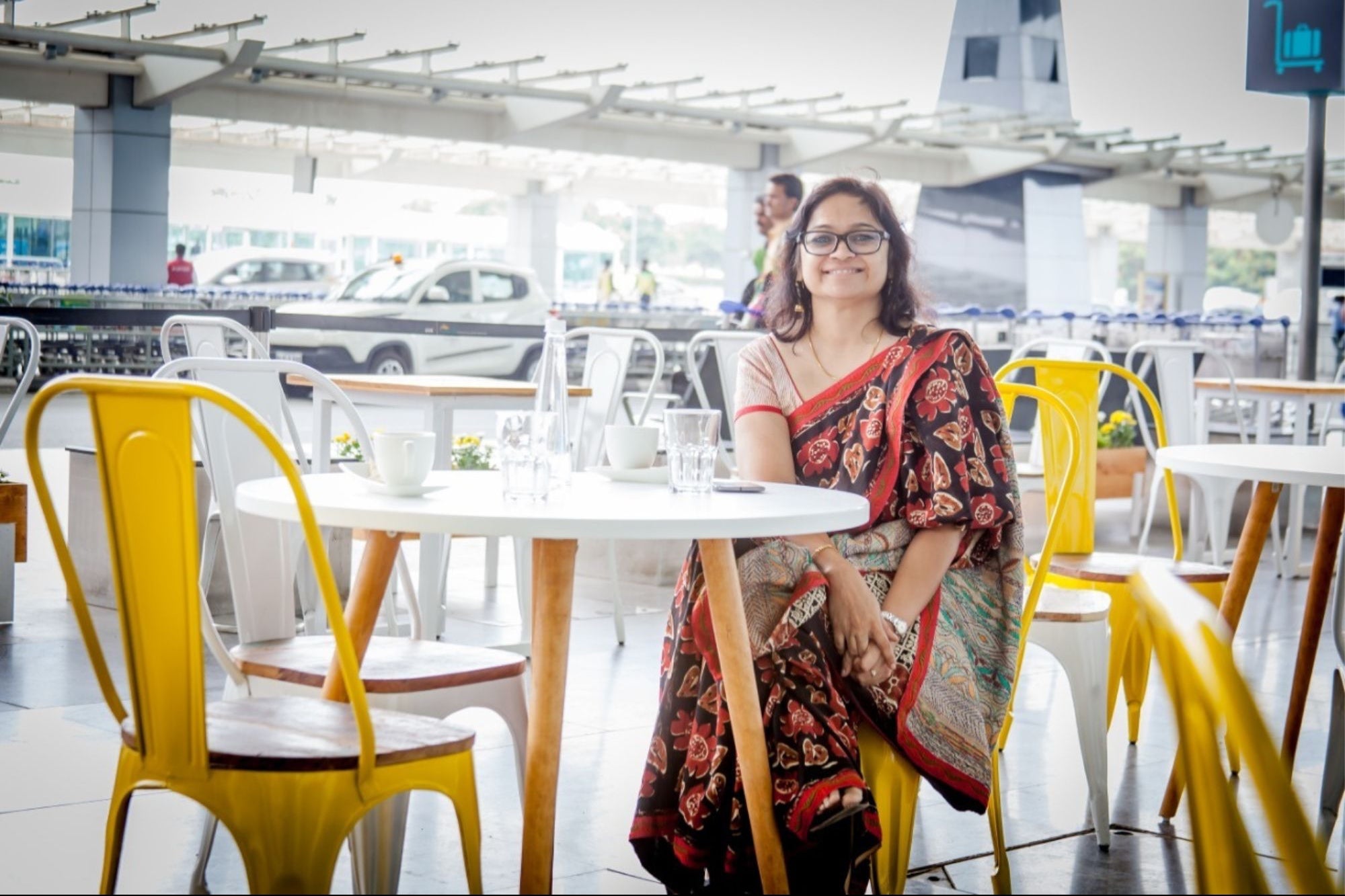This Startup Is Freshening Up Both Your Food And Menu "The benefit in running an internet restaurant is that we can tweak our menus quickly to introduce appropriate seasonal flavour profiles," says Rashmi Daga, CEO, FreshMenu
Opinions expressed by Entrepreneur contributors are their own.
You're reading Entrepreneur India, an international franchise of Entrepreneur Media.

A couple of months back, restaurant aggregators Zomato and Swiggy went offline for a few minutes due to a technical glitch. Although they resumed functioning per usual soon enough, the brief intervening period saw social media discourse being taken over by an army of disgruntled complainants and cheeky memesters. One might wonder, are food delivery apps fuelling the Indian population's appreciation for culinary skills or (perhaps more likely) enabling their laziness in the kitchen?
Rashmi Daga, who founded an online restaurant and delivery service in 2014, seemingly skirts the question in favour of delightful diplomacy: "Much like our mothers and grandmothers and great-grandmothers and so on, our cooking prowess has declined in comparison to the previous generation but that is only natural."
When prodded further, she concedes that the younger generation today is rather unwilling to slog in the kitchen but credits them all the same with surpassing their predecessors in being well-versed with flavours and ingredients. And she is right. Sure, these twenty-something armchair gastronomes—Daga's primary consumers—may not have perfected cooking the old daal-roti, but they can certainly tell if the soufflé has risen high enough as they point to their TV screens while bingeing on Masterchef Australia.
Their fascination with international cuisines and flavours prompted Daga to curate global food options on her app FreshMenu. "Initially, we had a daily changing menu. But over time, our consumers developed favourites and so it made sense to revise our menu less frequently, with there being a few consistent items." But innovation is still a mainstay of her enterprise: "Today, we launch new products almost every week in a month, and whatever proves successful stays on the menu. We also create excitement around food by introducing new products thematically: for instance, deserts see a spike around the Chocolate Festival."
Sourcing ingredients for an inventive global menu is not easy due to supply chain gaps in the local and seasonal availability of certain items. Having been in this business for eight years though, FreshMenu has found many a way around the issue: for instance, offering chickpea and quinoa salads in summers when lettuce is unavailable in Delhi for sale on a commercial scale. "The benefit in running an internet restaurant is that we can tweak our menus quickly to introduce appropriate seasonal flavour profiles."
Despite careful and creative planning, some experiments are bound to fail when the customer's taste buds are the sole jury. According to Daga, while the likes of Parisian and Cantonese cuisines make for fine dining and authentic restaurants very well, they are unsuccessful ("bland", as many of her consumers complain) in the delivery business. "Indian palettes are built for a burst of flavours," she says, adding, "Mexican dishes have done very well for us, with the Mexican Burrito Bowl being one of our most popular products."
As much as she appreciates Indian consumers' increasingly discerning palate and strives to cater to their international interests, Daga is ultimately clear about FreshMenu's motto: "We want to bring the world on your plate but in a format that you are satisfied eating it as a meal. We are not here to teach you about cuisines."
Talk to her about competitors in the forever proliferating commercial food sector and you'll see that the company has got its blinkers on to focus exclusively on its own operations. If anything, Daga considers home food to be FreshMenu's biggest rival. Oft omitted from these discussions, home food is typically the most suitable option: it is hygienic, healthy, fresh, inexpensive and customised to individual tastes. To motivate the consumer to buy from outside instead of cooking at home, online restaurants must offer all these and more advantages.
In addition to targeting flavour and taste, FreshMenu takes many measures to prioritise the health quotient of the food prepared in its kitchens: avoidance of preservatives, colours and other additives; cooking fresh food from scratch as opposed to reheating previously prepared items in microwaves; balancing the composition of carbs, protein, fat, fibre, etc, in a meal; using healthier processes, such as grilling rather than frying; et al.
Things are always heating up in FreshMenu kitchens and food is just one of them. "Conflicts between planners who prepare creative menus and cooks who execute these dishes are not only natural and common but also healthy," says Daga. Ultimately, the menu that triumphs is the one that survives the constraints of execution, cost, speedy delivery, and packaging, among others.
Packaging, especially, is a big concern. "Initially, packaging configurations were difficult to figure out as 10 years back there were no take-away packaging solutions in India. You got masala dosas in newspaper pouches, for instance," she says. FreshMenu has come a long way since and uses recyclable food grade paper-based packaging as well as reusable high-grade plastic packages. "We are yet to build a fully sustainable packaging solution but we are committed to it."
And finally, if one has learnt anything from watching Masterchef Australia, it is that flavour and presentation are important, but so is nomenclature. How does FreshMenu name its dishes? "After going from very simple naming to very complex naming, we have zeroed in on a maximum of three words," she says. "For example, Caesar Chicken Salad works great for us because it avoids confusion. You have to give the customer a hero ingredient," she adds, keeping the Masterchef analogy going.
As for plans for the future, Daga says that FreshMenu is in the midst of expanding its team and kitchens and is currently looking to add a few more brands to compliment its product portfolio and partner with niche players such as beverage-focussed brands.









